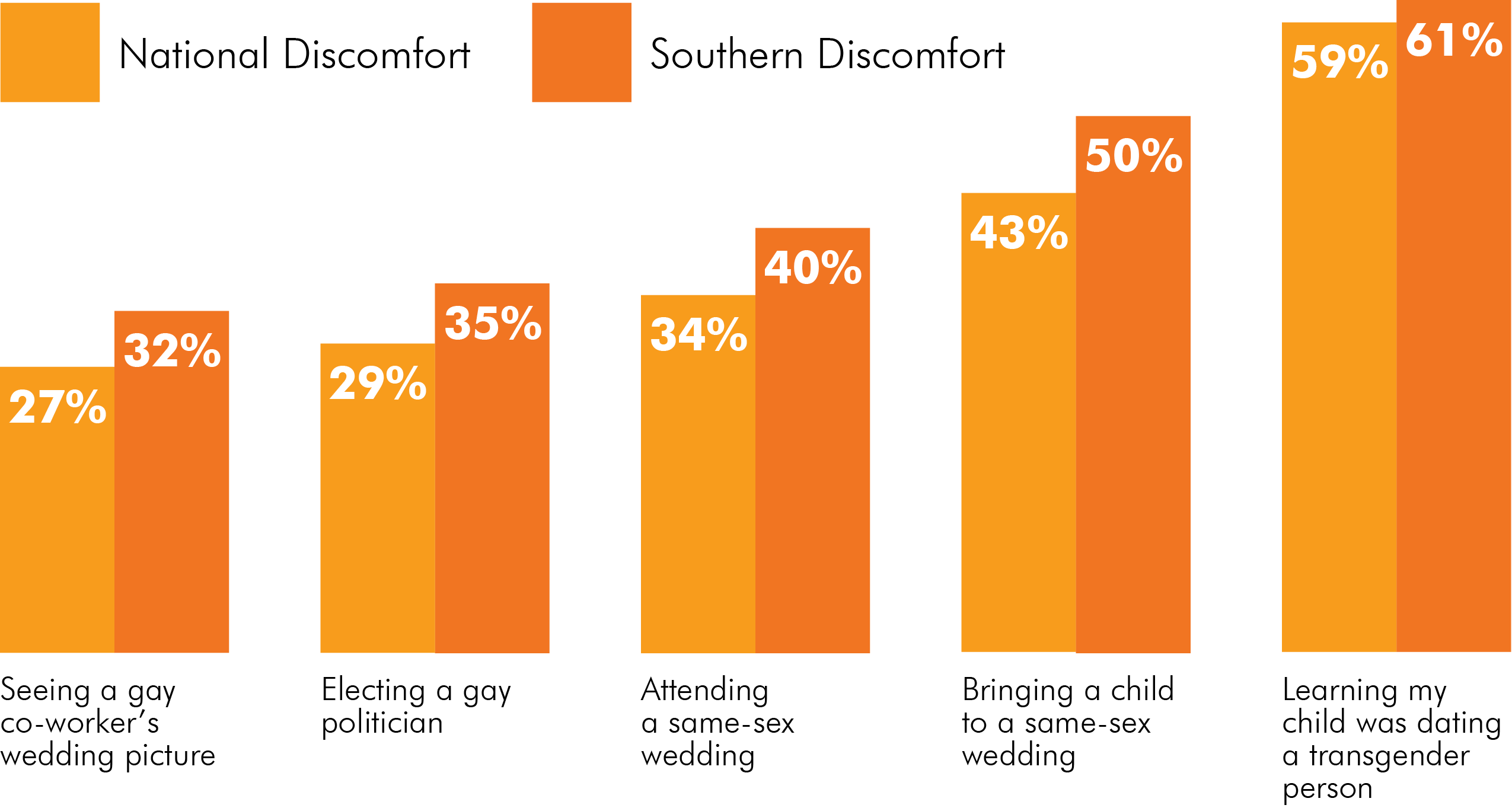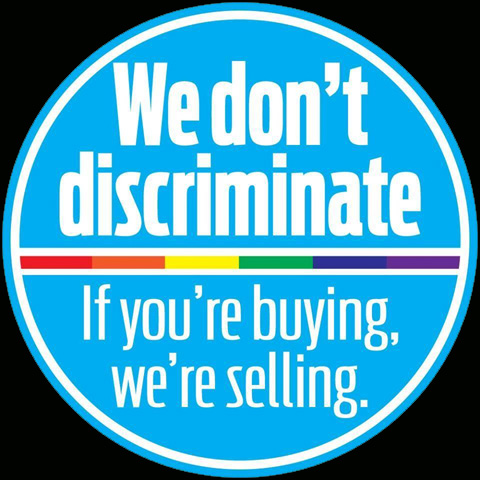LGBT people in the South continue to face obstacles at higher rates than the rest of the country. Yet LGBT Southerners are resilient and continue to thrive.
For first-hand accounts of being LGBT Southerners, check out the original short documentary series, GLAAD Presents: State of Change below. Check back for additional videos in the six-part series. More are on the way:
Consider this:

- Across the board, people in the South showed more discomfort with LGBT people than those in the U.S. overall. Many of the responses demonstrated discomfort levels at 5 to 6 points higher in the South than in the country as a whole.
- 40% of respondents in the South listed discomfort with attending a same-sex couple's wedding. It jumped to 50% discomfort when bringing a child to the same wedding.
- Levels of discomfort concerning issues related to transgender people were highest, both in the South and with the general U.S. population.
Nondiscrimination:
There are no statewide protections for employees on the basis of sexual orientation or gender identity. However, several local governments across the south have enacted nondiscrimination ordinances. Check out a few of those ordinances in Houston, Texas; Oxford, Mississippi; and Broward County, Florida.
Mississippi is the only state to pass a "license to discriminate" bill that allows businesses to refuse to do business with LGBT people. But several Mississippi businesses have made statement by displaying signs in their windows reading, “We Don’t Discriminate. If you’re buying, we’re selling.”
Schools:
North Carolina and Arkansas have safe school laws that protect students on the basis of sexual orientation and gender identity. Georgia has a school policy that prohibits bullying based on sexual orientation.
Six southern states have anti-LGBT laws in the schools. These laws may prohibit school bullying or nondiscrimination policies from listing protected characteristics. They may also prohibit students or teachers from talking about LGBT people.
Dozens of schools, colleges, and universities across the south went purple for Spirit Day.
Family:
Parenting by same-sex couples is more common in the south. But same-sex couples face legal restrictions in adoption and foster care.
Support for marriage equality has been growing slowly across the country, but southern support for marriage equality is the lowest in the nation, hovering just below 50%.
No southern state allows employees leave to care for a same-sex partner. However, individual corporations may allow employees leave, based on company policy.
Public Life:
Five southern states have openly LGBT public officials. Florida has the third most openly LGBT public officials in the country at 25 (tied with Illinois). Georgia elected the nation's first state legislator who was openly lesbian and African-American.
When Crystal Moore, a police chief in Latta, South Carolina, was fired for being a lesbian, the city rallied around her until she was reinstated.
Dozens of local and regional LGBT organizations build community and provided resources for LGBT southerners.
HIV & AIDS:
All southern states, except for Texas, have a law criminalizing exposure or transmission of HIV. If convicted, people can face possible prison time or registration as a sex offender.
Reporting on LGBT people in the South:
GLAAD is publishing guides for journalists reporting on LGBT people in six Southern states. Check back to find the most recent publications.

















